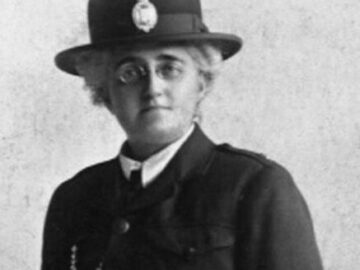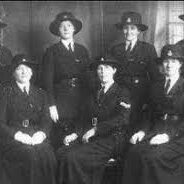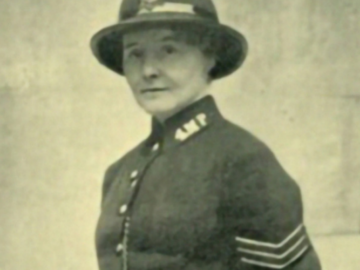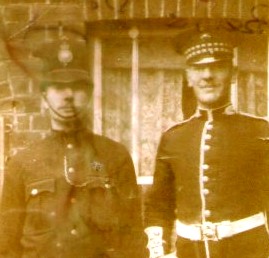Role: Metropolitan Women Police Patrols
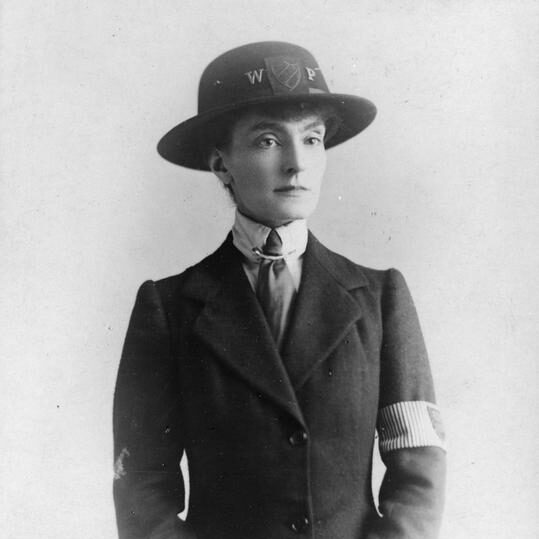
Sofia Anne Stanley was the first female police officer and the first commander of the Metropolitan Police’s Women Patrols from 1919 to 1922.
Stanley became interested in working for the police when she was visited by a former police officer in the Indian Civil Service. She became a women’s patrol leader in Portsmouth for the National Union of Women Workers.
In March 1917 the Union appointed her as a Supervisor of its Women’s Patrols in London where she raised the number of women patrolling full-time from 37 to 80. She regularly reported the Patrols’ activities to Sir Edward Henry, Commissioner of Police of the Metropolis, comparing it favourably with the work of the Women’s Police Service (WPS).
The Metropolitan Women Police Patrols were officially launched on 17 February 1919. Its officers were not given the power to arrest and operated based on the style of Stanley’s patrols rather than the WPS, which the Commissioner believed had links to the Suffragette Nina Boyle. Stanley was put in control of the patrols with the specially-created rank of Supervisor. By February 1919 fifty women had been recruited, rising to 112 by 1922. The Geddes Axe recommended their complete abolition but Stanley worked with the first woman MP to take her seat, Nancy Astor, to force the Home Secretary Edward Shortt to leave a group of 20 women. However, one of the Patrols’ early officers Lilian Wyles complained against Stanley’s tactics, leading to a disciplinary enquiry which found Stanley guilty of intriguing against Shortt and then attempting to cover this up. As a result she was dismissed and her role as the head of women in the Met given instead to Bertha Clayden. In her later years she moved to Calcutta but returned to England in 1939 where she tragically died from her injuries after being involved in a traffic accident.


